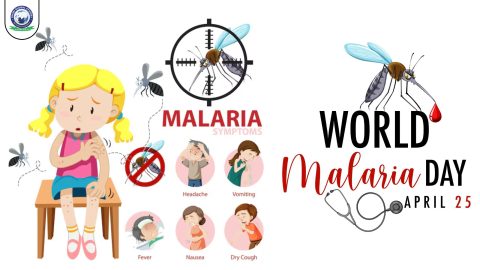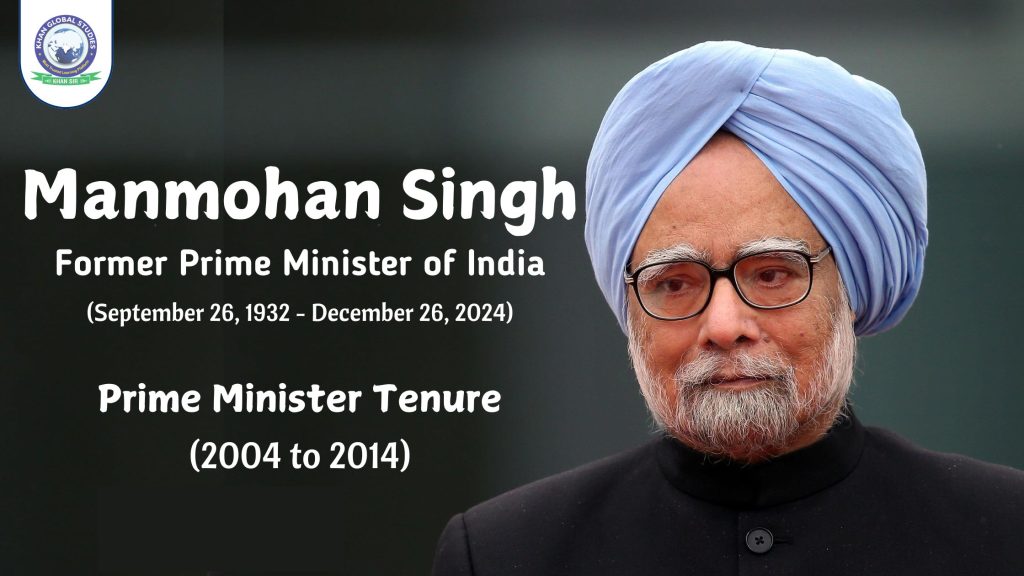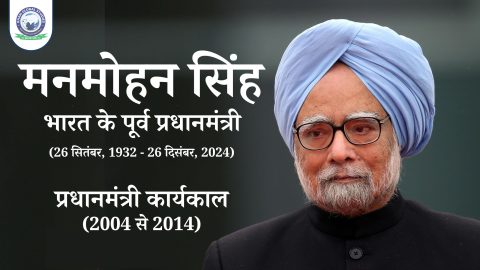Former Prime Minister of India Manmohan Singh passed away at the age of 92.
Manmohan Singh, who was the Prime Minister of India from 2004 to 2014, was one of the longest-serving Prime Ministers of the country. He is considered the architect of major reforms in the Indian economy. He also served as the Finance Minister before becoming the Prime Minister.
Singh was admitted to a hospital in Delhi after his health deteriorated, where he breathed his last. Prime Minister Narendra Modi paid tribute to him, saying, “India has lost a great leader.” Modi praised his wisdom and humility, which are always reflected in his actions.
Congress leader Priyanka Gandhi described him as a true egalitarian, intelligent, strong-willed and courageous leader. Rahul Gandhi described him as his mentor and guide.
Life and Early Education
- Manmohan Singh was born on 26 September 1932 in a small village in the pre-partition Punjab province, which lacked basic amenities like water and electricity.
- He studied at Punjab University and later obtained a master’s degree from Cambridge University and a D.Phil. degree from Oxford University.
- His daughter Daman Singh has written in her book that he faced financial difficulties while studying at Cambridge.
Political Life and Achievements
Manmohan Singh rose to prominence as the Finance Minister of India in 1991, when the country faced an economic crisis.
He laid the foundation for liberalisation in India. Under this he:
- Cut taxes.
- Devalued the rupee.
- Privatised government companies.
- Encouraged foreign investment.
- His efforts boosted India’s economy and the country’s growth rate remained consistently high in the 1990s.
Tenure of Prime Minister
- Manmohan Singh was appointed Prime Minister in 2004 after Sonia Gandhi declined the post.
- The major achievements of his first term included the landmark nuclear deal with the United States, which gave India access to nuclear technology.
- However, corruption allegations and scandals during his second term damaged the government’s image.
- He defended his government’s policies and achievements, saying they “worked with full commitment for the welfare of the country and its people.”
Foreign Policy and Peace Efforts
- Manmohan Singh continued peace talks with Pakistan and made efforts to resolve the border dispute with China.
- He increased cooperation with Afghanistan and redefined India-Iran relations.
- Singh continued the pragmatic foreign policies adopted by his two predecessors.
- He continued the peace process with Pakistan – although the process was interrupted by attacks by Pakistani terrorists, including the November 2008 Mumbai attacks.
- He attempted to end the border dispute with China, agreeing to reopen the Nathu La pass that had been closed for the past 40 years.
- Singh increased financial aid to Afghanistan and became the first Indian leader to visit the country in nearly 30 years.
- He also attempted to end relations with India’s old ally Iran, angering many opposition leaders.
Personality and Work Style
- Manmohan Singh was known for his quiet and studious nature.
- His critics considered him soft and indecisive, but he was widely respected for his integrity and intelligence.
- He defended his silence on questions related to the coal scam, saying, “Silence is better than a thousand answers.”
- In 2015 he was summoned to court to stand trial on charges of criminal conspiracy, breach of trust and corruption. Manmohan Singh told journalists that he was “ready for legal investigation” and that the “truth will come out”.
Final Days and Legacy
Even after stepping down from the post of Prime Minister, he continued to work as a senior leader of the Congress Party. In August 2020, he suggested taking concrete steps to save India’s economy. History will remember Manmohan Singh as a leader who pulled India out of economic and nuclear isolation. He expressed confidence that “history will be kind to me.” He has left behind a full family including his wife and three daughters.
Frequently Asked Questions
Q: When did Manmohan Singh become Prime Minister?
Ans: He was the Prime Minister of India from 2004 to 2014.
Q: What economic reforms is he known for?
Ans: He led reforms that encouraged liberalization, tax cuts, and foreign investment.
Q: When was he born?
Ans: He was born on 26 September 1932.
Q: What did he apologize for in Parliament?
Ans: He apologized for the 1984 Sikh riots.
Q: Which party was he associated with?
Ans: He was a member of the Indian National Congress party.
Q: What was Manmohan Singh’s greatest contribution?
Ans: He is known for reforming and liberalizing the Indian economy.
Q: What did he do during the 1991 economic crisis?
Ans: He implemented a comprehensive program of reforms, including promoting foreign investment and privatization.
Q: Did Manmohan Singh ever apologize?
Ans: Yes, he apologized in Parliament for the 1984 riots in which many Sikhs were killed.



